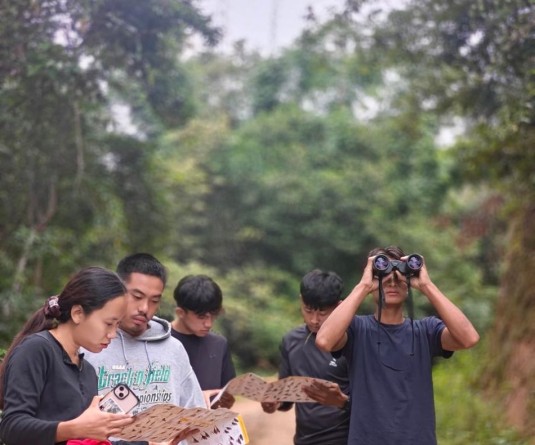
Kahuto Chishi Sumi
Convenor, Concerned People of Nagaland
If Nagas were educated we would know more about how a society, state and nation functions. But sadly, the overwhelmingly majority of Nagas are just literate; we know nothing other than what we mug up for our degrees, and outside our textbooks, our knowledge is practically nil. We depend on a mix of fact, hearsay and plain lies to form opinions about society; and when presented with the truth, instead of using reason and logic, our brainwashed minds jump to conclusion based on our pre-programmed opinions.
A nation is sustained by the producers and servicers. Producers are the people engaged in generating income by producing things which people need or desire and servicers are the people engaged in generating income by offering services which people need or desire. A farmer and factory worker are examples of producers and a doctor and waiter are examples of servicers. All contribute to society and the nation, but some are essential whereas others can be done without. The most important contributor to a nation is the farmer. Every nation in the world grants incentives and subsidies to farmers, and in India and many other countries, agricultural income is tax free.
There are two types of paddy farmers in Nagaland, the first type is exemplified by Wetshete Joseph Thopi, an educated, employed gentleman, who goes to his village to personally work the paddy fields for every phase and cycle of cultivation. I am the example of the second type of Naga farmer, the lazy, good for nothing, who employs share croppers to plough, plant and harvest and shows up once a year to take his share of the crop. But neither of us gets any grant, subsidy, aid or machinery in any form. Those go to the Nagas who farm the offices of Nagaland. But this is not to complain, but to illustrate the fact that in Nagaland, those who produce by working the land, get no support.
Nagaland, having no factories or industries and negligible resources, is sustained entirely by the Government of India. During Atal Behari Vajpayee’s second term as Prime Minister of India, Dr Manmohan Singh raised the question of what happens to all the money that India pumps into Nagaland. Singh calculated that the Indian Government gives the equivalent of nearly Rs 6000 a month for every man, woman and child in Nagaland. What that means is that if the money given to Nagaland by India was divided equally among us, each one of us, including our children, would get nearly 6000 rupees each, every month.
This money, instead of being used to develop Nagaland and create jobs and opportunities, goes into the pockets of our Politicians, Bureaucrats, their cronies and boot lickers. This stifling of opportunities, combined with rampant backdoor appointments, has driven thousands of Nagas, educated and uneducated, to search for a living outside the comfort and safety of our homeland.
After our farmers, this Naga diaspora is the most important contributor to Nagaland. Their departure lessens the demand for the few opportunities available in Nagaland and eases the strain on our resources. The money they send back to their families, no matter how small the amount, strengthens our economy.
So, in their time of distress, who dares question their right to return? We have read and heard of people who risk their lives to save others, braving enemy fire, in the midst of calamities and in the face of deadly diseases. How cowardly are you that you would seek to refuse our own people entry into our lands because of a minuscule chance that you could contract an infection? Since when did you become the owners of Nagaland?
Apart from our farmers, they are worth more than the rest of us combined. In fact, a waiter or a spa worker is worth more than all of our politicians and bureaucrats combined, for the former generate income while the latter devour income.
God Save Nagaland




